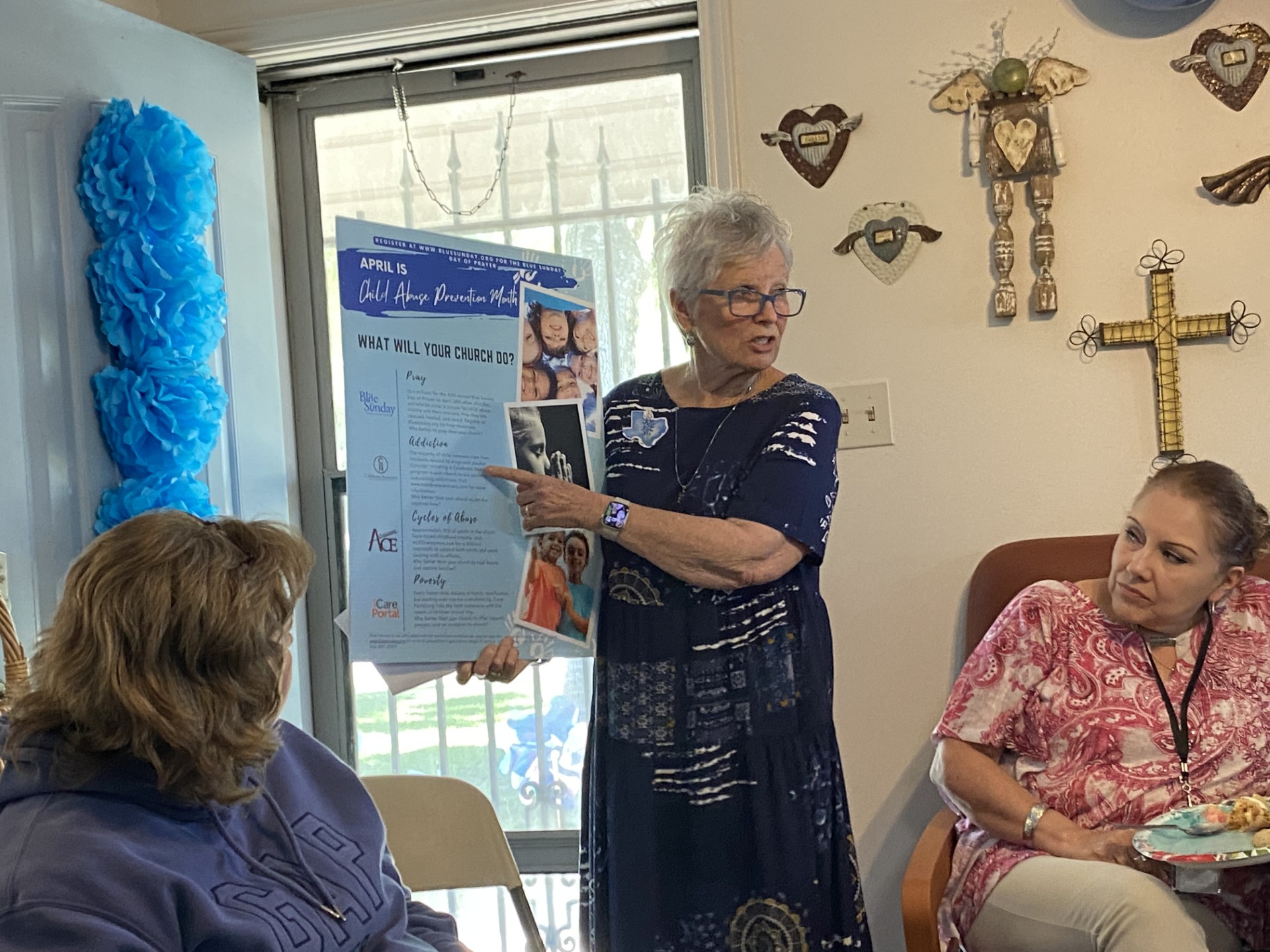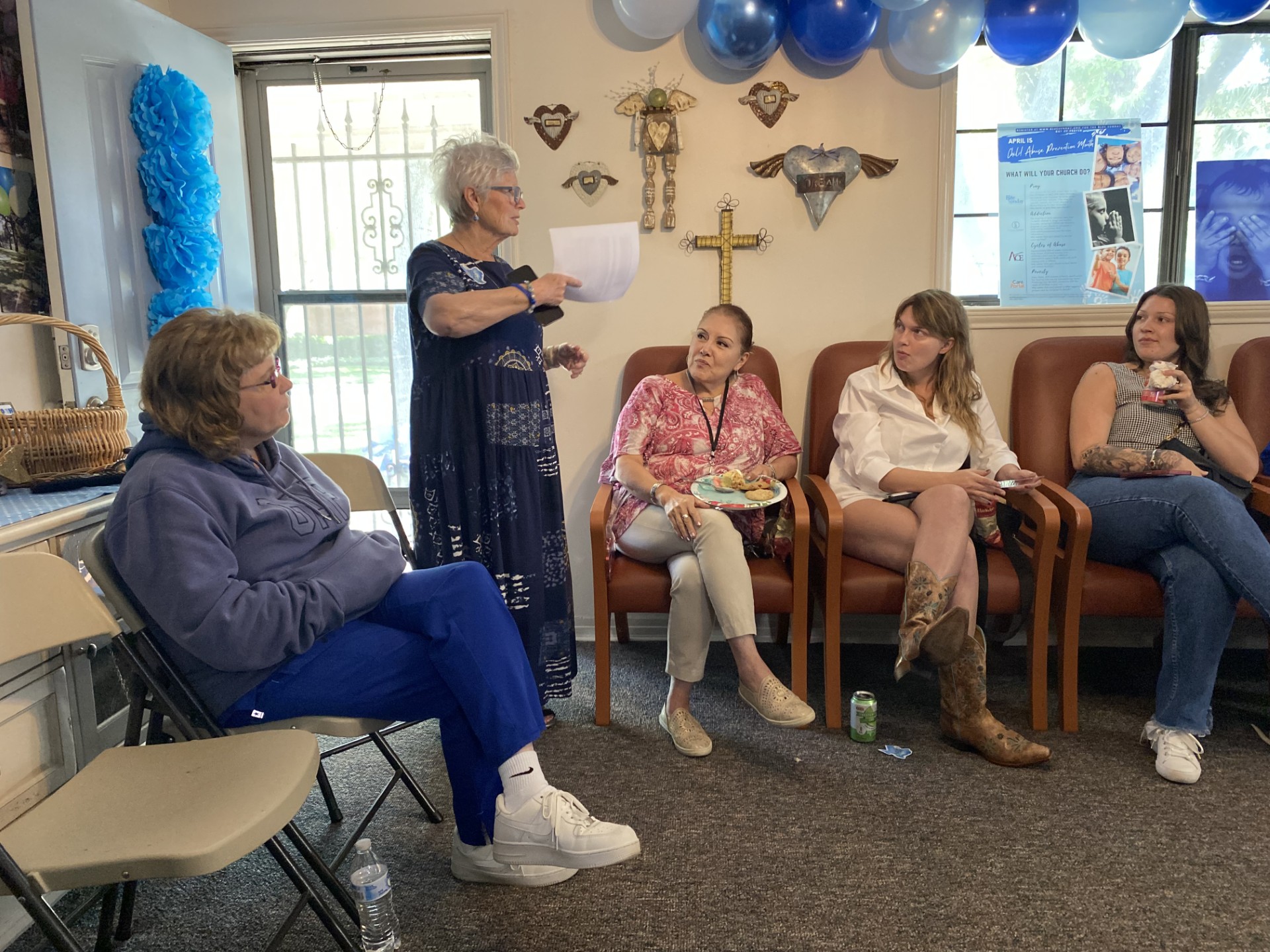
|
Only have a minute? Listen instead
Getting your Trinity Audio player ready...
|
HARLINGEN — Blue Sunday is always there.
When the Texas Department of Family and Protective Services needs someone to pick up or drop off supplies for an at risk child, Blue Sunday always says yes, said Cornelia Garza, faith-based and community engagement specialist.
The Blue Sunday Child Abuse Prevention initiative celebrated its 30th birthday party Wednesday with a luncheon at Blue Sunday headquarters at 1401 E. Austin Ave. Numerous organizations came together to celebrate the nonprofit’s work and talk about the value of its work.
“I am happy to be here to help support such a wonderful organization,” said Alex Ambriz from CASA of Cameron and Willacy counties. CASA stand for Court-Appointed Special Advocates.
“Blue Sunday gives so much support to kids in our counties in foster care,” Ambriz said.
Ambriz was one of more than 20 representatives of various organizations including the Children’s Bereavement Center, Sunny Glen Children’s Home and Hands of Healing foster care who listened attentively to Janet Magee, president and co-founder of Blue Sunday.
“I remember the day our Blue Sunday journey began,” Magee said. “I was serving as the children’s director at our church when I learned my daughter’s battle with addictions had returned. Despite years of rehabs, counseling and a million changes — once again her addictions spiraled, crushing us all.”

The women and the few men in attendance listened closely to Magee’s narrative. Blue balloons adorned the walls, a cross hung on the wall. They sat in quiet dignity, eating slowly on the croissants and wraps served for lunch, and affirmed with stern and deliberate nodding the sad stories laid out for them. They had all heard many such stories of course but each was fresh and brutal.
“That day God spoke to my heart — rescue who wants rescued,” Magee continued. “My daughter had not asked to be rescued, but her young children had. I wiped my tears and made the call to the state child welfare department which led to repeated home visits, interviews, and trips to what is called family court.”
The women and men who pondered each word were at once varied and united in their purpose. A young woman with blond hair chewed slowly on her sandwich next to an older woman in pink paisley and white slacks. A woman with the creases of life and joy and sorrows and bright eyes and prolonged vitality and youth listened with smiles and sorrows.
“It was at family court while waiting for our turn with the judge when we saw eight children enter the room,” Magee continued. “They were excited to see their siblings. They were holding hands, passing a baby back and forth, and chasing after the younger ones who kept trying to run around the room.”

Magee spoke of the joy of the children who had come to see their mother.
The children waited. And they waited and they waited and they waited.
It slowly became clear the mother was not coming, nor was a grandmother or anyone else. Joy turned to bitterness and heartbreak.
Magee and her husband had just observed a tragedy that happens many times every day. The knew something could be done — must be done — to alleviate the suffering of children in such circumstances.
They knew they could do something, and that’s how Blue Sunday came into existence and helps these children still today — thirty years after that tragic scene.



